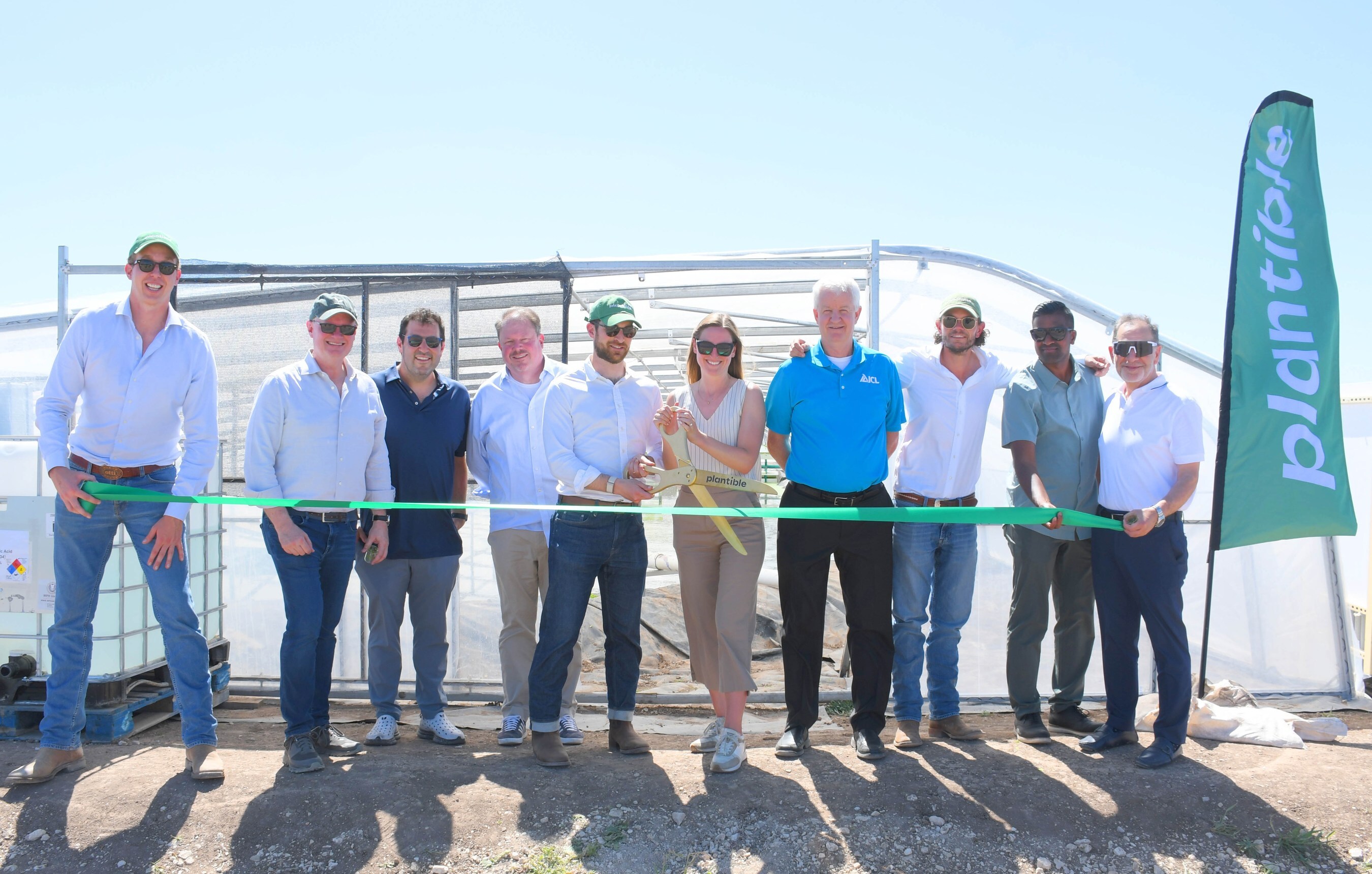

Plantible opens first US commercial facility, triples protein production capacity
Plantible has officially opened its first US commercial facility in Eldorado, Texas, marking a milestone in the company’s mission to reshape food production with sustainable plant-based ingredients. The company also confirmed it is entering a new phase of expansion to significantly increase output.
Known as the Ranchito, the Schleicher County site features a network of greenhouses, upgraded protein filtration systems, and a higher-yield strain of lemna – also known as water lentils – used to produce Rubi Protein, Plantible’s flagship ingredient. Lemna can be grown in harsh environments using 10 times less water than soy, with no arable land requirements, and doubles in biomass every two to three days.
The facility is expected to produce thousands of metric tons of biomass annually, delivering hundreds of metric tons of protein per year. Plantible estimates this could replace enough animal-based protein and synthetic ingredients in food supply chains to cut almost 8,000 metric tons of CO₂-equivalent emissions each year.
“This marks a defining moment for Plantible, our partners, and the community of Eldorado,” commented Tony Martens, Co-Founder & CEO of Plantible. “We’re scaling a food system rooted in science, sustainability, and shared prosperity – proving that it’s possible to build resilient food solutions while creating real economic opportunity in rural America.”
Plantible has integrated new filtration equipment that reduces production costs while increasing throughput, positioning the Ranchito to achieve cash flow positivity. The company is now producing Rubi Protein at scale for food manufacturers.
A neutral-tasting, allergen-free, complete protein with a PDCAAS score of 1.0, Rubi Protein offers emulsifying, gelling, and binding properties that allow formulators to improve texture and stability while matching the nutritional profile of animal proteins.
Plantible’s customers include ICL, which is working with the company to integrate Rubi Protein into consumer products. Paul Peterson, Global Alternative Proteins Leader at ICL Group, added, “Plant-based protein formulators have been searching for years for a clean label, highly functional replacement for chemically derived binders, such as methylcellulose. In partnership with Plantible Foods, we have been able to leverage our deep knowledge of proteins to create a market-leading binding solution that allows plant-based food manufacturers to meet the needs of even the most demanding consumers.”
Plantible chose Eldorado in 2022 for its operational and environmental advantages and has since added 32 skilled local roles in operations, engineering, and research. The company says its presence has helped raise the median income in the area by over 60%.
It has also developed workforce training and education partnerships, including an intern program with Angelo State University, aimed at building careers in sustainable manufacturing, agriculture, and biotechnology.
“Plantible is one of the rare companies delivering a cost-effective, versatile, and sustainable ingredient that fits seamlessly into the food supply chain,” said Mitch Rubin, Senior Director of Innovation at Elemental Impact. “Elemental is proud to support Plantible’s growth by investing in production scale and a strategic workforce development program to create local jobs. It’s clear that their product outperforms on functionality, advances climate benefits, and builds real food system resiliency.”
Plantible has introduced a proprietary lemna strain that increases Rubi yield per acre and is running trials on other strains to further improve efficiency, scalability, and affordability.
“With at least 35 species in the duckweed family and more than 1,000 strains, Plantible has excelled in identifying strains that are best adapted for growth in the local climate,” said Dr Chris Phillips, VP of Research. “We then tailor our growth conditions to further maximize protein production and product quality.”
The company is also seeking additional financing to scale the Ranchito to Rancho level, which would triple production capacity to meet growing demand.
The opening was marked with a ribbon cutting attended by community leaders, employees, and partners. Dr Russell Jessup, Professor and Center Director at Texas A&M AgriLife Research & Extension Center, said: “Plantible Foods’ ribbon cutting showcased an innovative team, transformative product, and streamlined facility.”
With scalable production now in place, Plantible plans to continue expanding its footprint in Eldorado, hiring locally, and developing new strains to drive the future of sustainable protein ingredients.
If you have any questions or would like to get in touch with us, please email info@futureofproteinproduction.com

.png)






